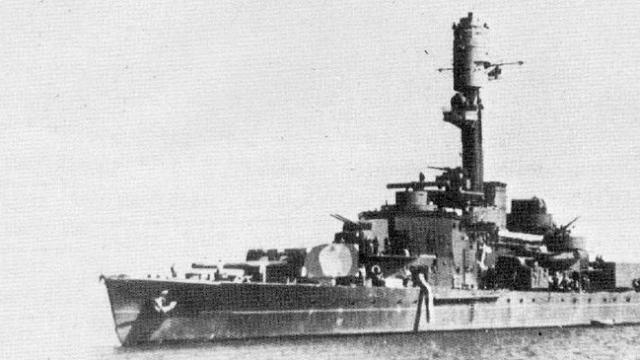When the Nazis surrendered their weapons at the end of World War II, the Allies got rid of them in a way that made sense in the 1940s: they dumped it all into the water. Mustard gas and other chemical weapons — estimates ranging from 13,000 to 300,000 tons — are now slowly leaking into the Baltic Sea.
The toxic consequences seem obvious in hindsight, but it was a different time back then — a time when the seas seemed big enough that our trash could lie in it forever undisturbed. “The Baltic Sea is known as the chamber pot of Europe,” as Yevgeny Usov of Russia’s Green Party put it in more colourful terms for the LA Times back in 1992.
After the war, British and American soldiers dumped much of Germany’s stockpiles of bombs and chemicals into the English Channel and near Denmark and Sweden. Meanwhile, the Soviets took to the Baltic Sea, which is especially problematic because of its shallow waters and densely populated coast.
Having never left tons of mustard gas in the sea for decades before, we’re not really sure what will happen. The cold temperatures of the water turns the mustard gas into a sticky solid, but it remains toxic. It goes without saying that there’s pretty much no way it is a good idea.
What makes it worse is that no one knows exactly where the weapons were thrown overboard. It seems that the Soviets did not always follow designated dumping grounds and so fisherman have caught mustard-gas shells far from the designated zones. Researchers at Poland’s Military University of Technology has also found traces of mustard gas off the Polish coast, again nowhere near the dumping grounds. Meanwhile, in areas where the chemicals were supposed to be stashed, scientists claim to have found more fish with diseases and genetic defects.
More than 3,000 pounds of mustard gas have been snagged up in fishing nets, and fishermen have had to be hospitalized for exposure. The “iron harvest” refers to the remnants of World War I — shells, barbed wire, bullets, shrapnel — that farmers in Belgium and France dig up every year on the old Western Front. To that we can add the toxic catch from the Baltic Sea. [The Telegraph, Economist via Treehugger]
Image: Battleship in the Baltic Sea via Wikimedia Commons
